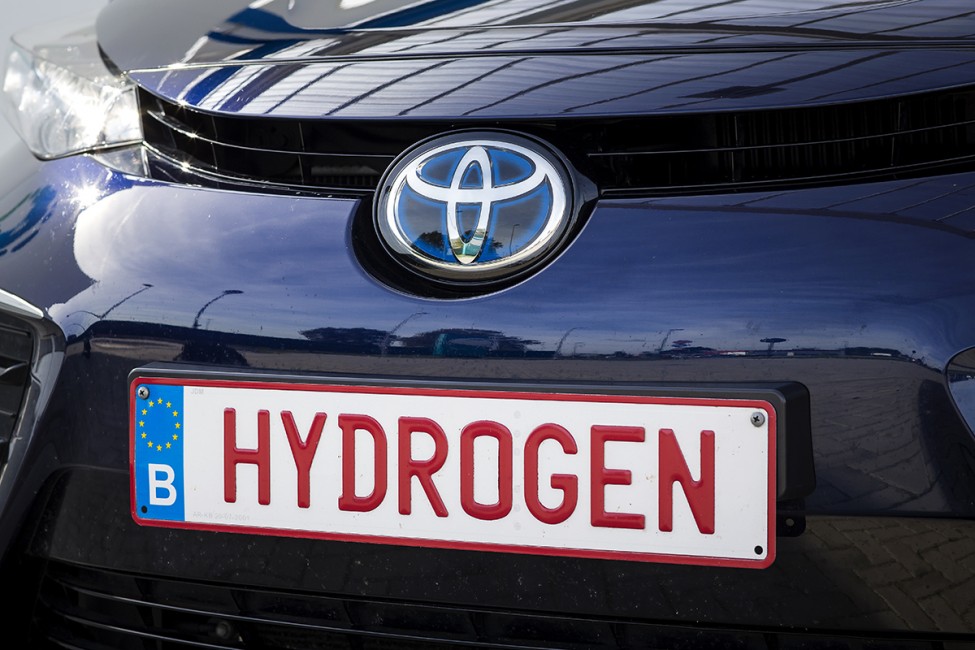
Toyota is one of the last major manufacturers to launch an electric vehicle, delaying its debut in “bZ” electric vehicles until 2022.
The reasoning behind this position is explained in the last paragraph. In the meantime, however, Japan’s No.1 automaker has been pushing hydrogen heavily as a viable future carbon neutral fuel through its production of the Mirai fuel cell car and its fuel cell module assembly for trucks. Heavy trucks planned in Kentucky, with at least two other hydrogen-powered models – a Prius and a Corolla – set to land in showrooms by the end of 2022.
As the world’s first mass-produced hybrid vehicle, the Prius debuted in 1997, and over the next two decades the brand expanded its hybrid and plug-in hybrid powertrains to encompass the entire lineup. The only models that do not offer hybrid options are sports cars like the Supra, GR Yaris and GR86. Even the Land Cruiser expects a hybrid version in 2022.
And now, Toyota plans to launch an all-new 5th-generation 1.8-liter petrol hybrid Prius in December 2022, and will add a hydrogen-powered PHEV version to its lineup in 2023. This will be the first time that Japan’s largest automaker has blended its two signature technologies, plug-in hybrids and hydrogen power.
But that’s not all. At the end of 2022, Toyota will launch the Corolla Sports GR, a high-performance, four-wheel-drive five-door hatchback that uses the same 257 hp 1.6-liter, 3-cylinder turbo gasoline engine as the award-winning model (Car British of the Year, etc.) GR Yaris. And yes, the GR Yaris may not have reached US shores, but the hot Corolla hatch should.
Although this particular Corolla does not use hydrogen, Toyota has announced plans to launch a hydrogen-powered Corolla by 2023, after competing in Japan’s only one-day race “The 24 Hours of Fuji” using a hydrogen powered Corolla. It won’t be a fuel cell car like the Mirai, but will use hydrogen to power its engine. The reasons for this change are twofold: to achieve its goal of carbon neutrality by 2050 and to improve fuel consumption across the range.
Is the reasoning simple? In addition to aiming to achieve its goal of carbon neutrality by 2050 and improving fuel economy, Toyota will use its motorsport program to promote hydrogen as a viable alternative to electric cars. Toyota has just launched its second-generation Hydrogen Fuel Cell Mirai sedan, but this is the first time the company has run a hydrogen-powered car.
To avoid confusion, it should be explained here that the powertrain of the Mirai and that of the Corolla race car, and the Prius of the 2023 model year for that matter, are very different. The Mirai generates electricity to power its engines from a chemical reaction between hydrogen and oxygen in fuel cells, while hydrogen-powered vehicles like the future Corolla are similar to motor cars. conventional, except that they burn hydrogen instead of gasoline. And the next generation Prius will use hydrogen to power its plug-in hybrid system, instead of gasoline.
What Toyota is trying to say through the development of the hydrogen powertrain, but gets caught up in media criticism that it ignores the industry’s trend towards electric vehicles is that manufacturers should strive to become more versatile ‘mobility providers’ and aim for a more balanced mix of powertrain technologies in their lines, a mix that includes hybrids, plug-in hybrids, electric vehicles, fuel cell cars like the Mirai and hydrogen engines like the Corolla.
To explain the company’s slow adoption of electric cars, a Toyota spokesperson mentioned in 2019 that Toyota is able to produce enough batteries for 28,000 electric cars each year, or 1.5 million cars. hybrids. Another important factor is emissions. Toyota says the sale of 1.5 million hybrid cars reduces carbon emissions by a third more than the sale of 28,000 electric cars. So, put simply, its carbon footprint is smaller if it sells significantly more gasoline-electric and hydrogen hybrid vehicles.
Source: Canadian Express News /Forbes
Read the most up to date Fuel Cell and Hydrogen Industry news at FuelCellsWorks




